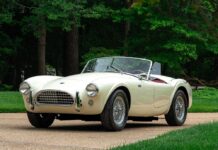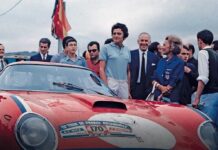Tom Cotter is about as close to Briggs Cunningham as possible, considering he only met the man once. Amazingly, their bond continues to grow, 20 years after the renowned racer and entrepreneur’s death. A shared love for a special car will do that.
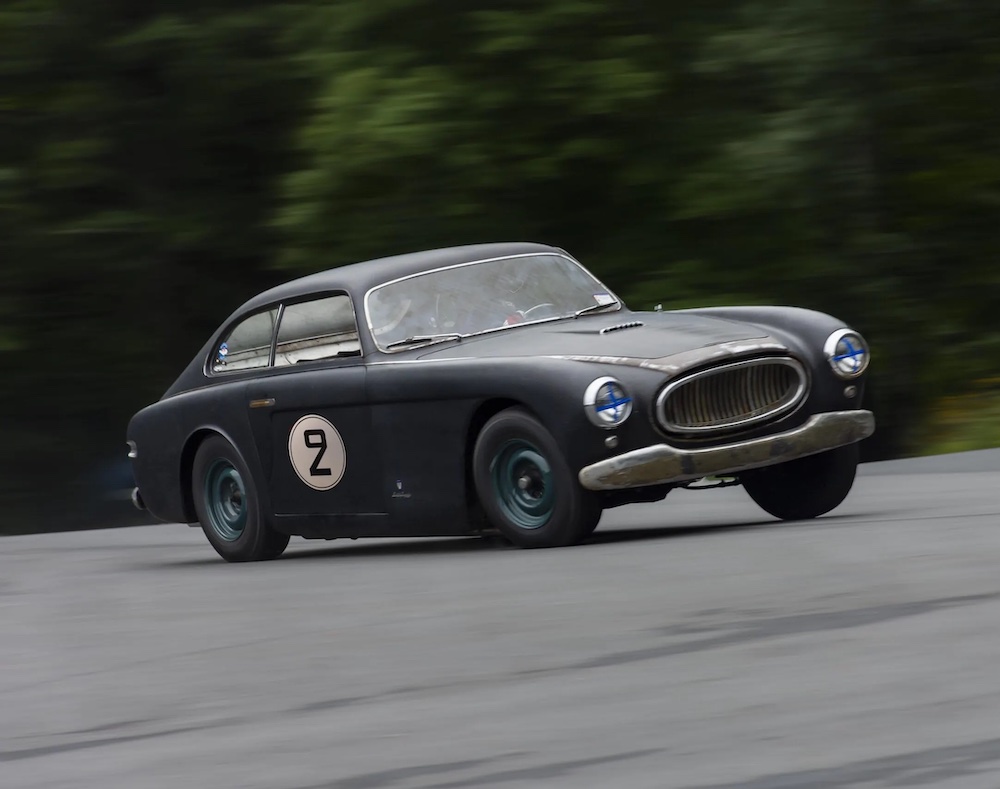
“I dreamed of owning one of these since my mid-20s,” Cotter says of his 1952 Cunningham C-3 Vignale Coupe. “I had everything Cunningham—artwork, diecast cars, model kits, books. I’d been to his museum. The only thing I didn’t have was a car, but I was satisfied with that because I knew I could never afford one.”
That all changed about 15 years ago. Cotter, well known in the collector car community for his Barn Find Hunter series of books and Hagerty videos, attended a Sports Car Club of America (SCCA) gathering in Spartanburg, South Carolina, and spoke about his relentless pursuit of automotive treasure. His friend Joe Finger asked, “What would be your ultimate barn find?” Cotter explained that he’d already found it: a 1965 Shelby Cobra that became the subject of his book, The Cobra in the Barn.
“So then he asked, ‘What would be your second?’ I said I always thought it would be fun to find a Cunningham, but that would be impossible,” Cotter says. “He said he knew of one 20 miles away in Greenville. I thought, ‘There is no way it can be real.’ And son of a gun, it was.”
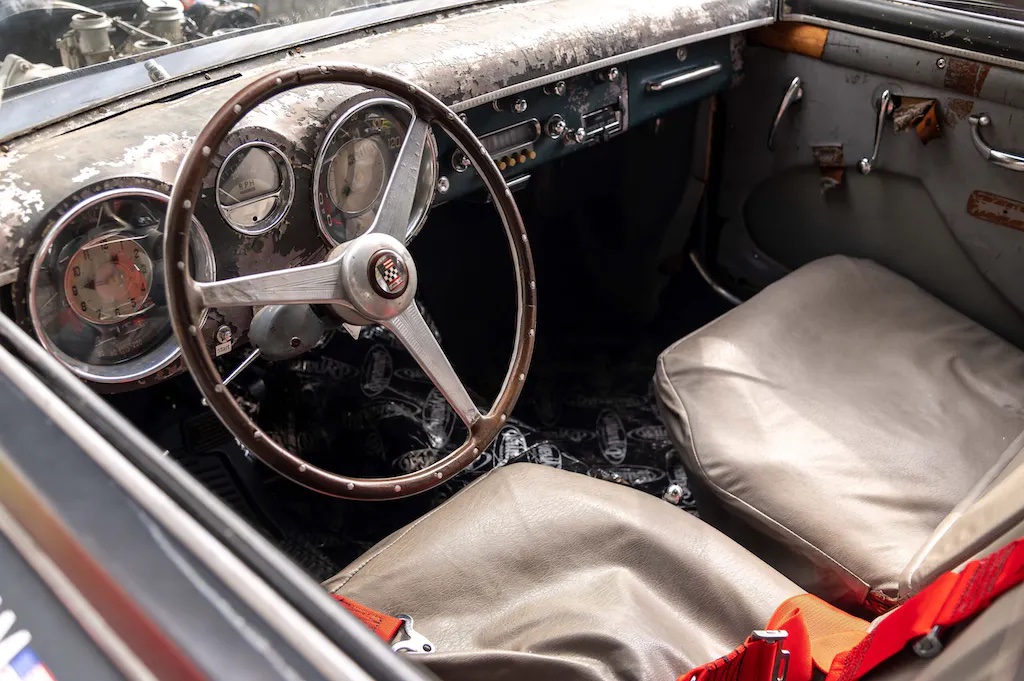
Briggs Cunningham (January 19, 1907–July 2, 2003) was a man of many talents. Born into a wealthy family, he loved sailing, tennis, and racing cars, and he was good at all three. Outside of automotive circles, Cunningham is best known for skippering the yacht Columbia to victory in the 1958 America’s Cup race, but he also had an extensive auto racing resume.
Cunningham began racing internationally in 1930 with Yale University classmates and brothers Cowles “Miles” Collier and Sam Collier, who established the Automobile Racing Club of America (ARCA) in 1933. ARCA became the Sports Car Club of America (SCCA) in 1944, and Cunningham became one of the most successful SCCA racers of the era. That led to Le Mans—and, ultimately, a series of 1952 Cunningham C-3 Vignales.
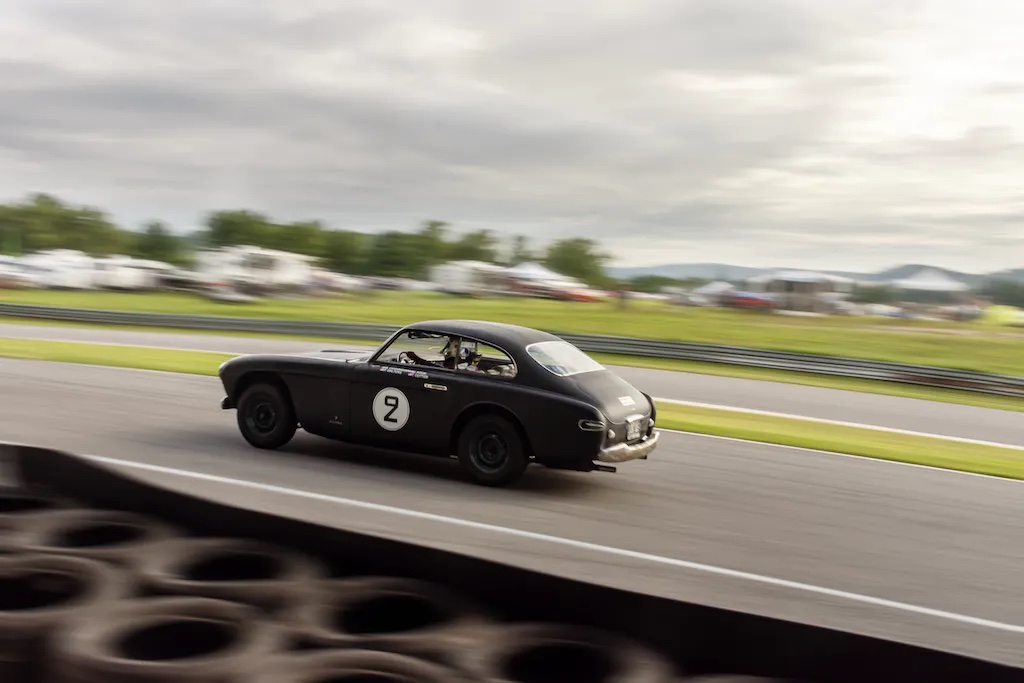
Due to homologation requirements, race car builders were obligated to manufacture a minimum of 25 street cars in order to compete at Le Mans, so Cunningham built 27 C-3s. Two received U.S.-constructed bodies, and the other 25 were bodied in Italy by Vignale and made available to the public—20 coupes and five roadsters. All of the C-3s still exist. (In fact, 35 of the 36 total cars built by the B.S. Cunningham company are still extant; an incredible survival rate for 70-year-old automobiles.)
One C-3 was just crossing the auction block at Monterey. RM Sotheby’s just sold it for nearly $1 million.
Fortunately for Cotter, there was a C-3 hiding in Greenville, just waiting for him to find it.
“It was a completely undocumented Cunningham that hadn’t seen the light of day in 50 years,” Cotter says. “It took me two years to talk the guy into selling it, and when he finally said yes he said it was because ‘there’s a Lamborghini sitting right next to it, and you walked right past it to look at the Cunningham.’”

The tired C-3 had five previous owners, and the car had never left Greenville until Cotter took it home to North Carolina. It had only 39,000 miles on the clock. Cotter’s infatuation with all things Cunningham grew to a fever pitch as he researched the car.
“It went from being an undocumented Cunningham to the most documented Cunningham,” he says. “(I learned that) it won two concours in 1952 at Watkins Glen (New York) and Elkhart Lake (Wisconsin), was displayed at the Museum of Modern Art in New York, and was in the museum’s book Ten Automobiles. It has an amazing history, and I’ve been able to document it all.
“I have so much stuff on this car, and I keep finding more and more. It has more than fulfilled my appetite for research and history. I always say, owning the car is only half the fun. Researching it and telling its story is the other half.”
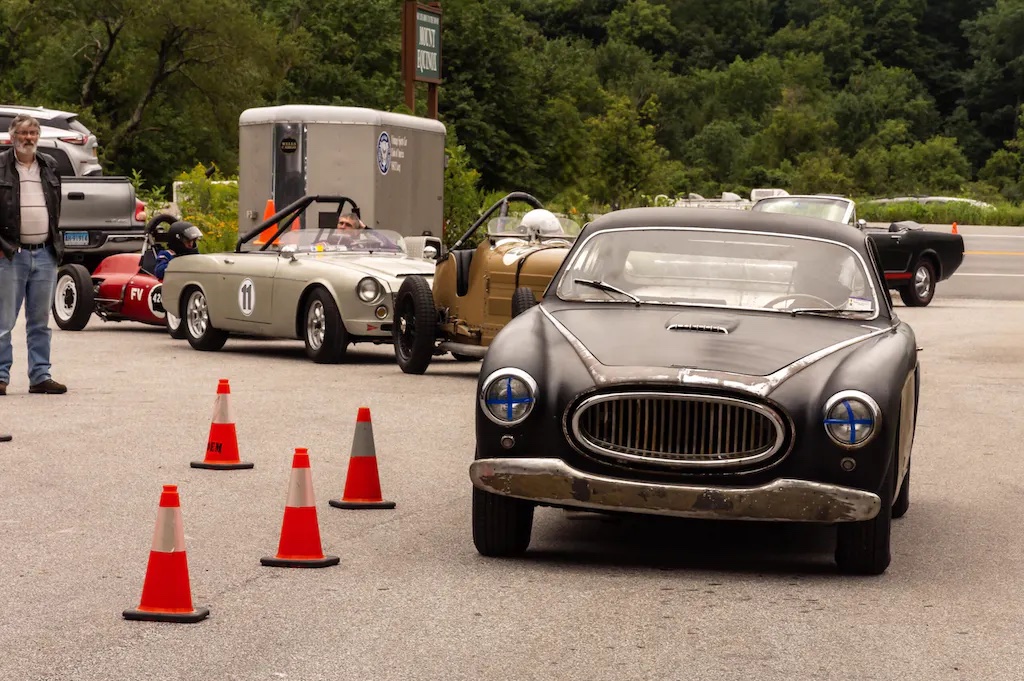
The story of the C-3 can’t be told without also telling the story of Briggs Cunningham. Cotter knows it well. He met Cunningham in 1982, long before he purchased the C-3, and eventually became friends with Cunningham’s son and daughter.
“When Briggs went to Yale in 1926, he got a raccoon coat to wear to football games. His daughter gave me that coat,” Cotter says. “And I have a driving suit that belonged to John Fitch, one of his drivers. So I’m pretty deep into it, obviously.” (He isn’t kidding. Cotter even has a Goldendoodle dog named Briggs.)
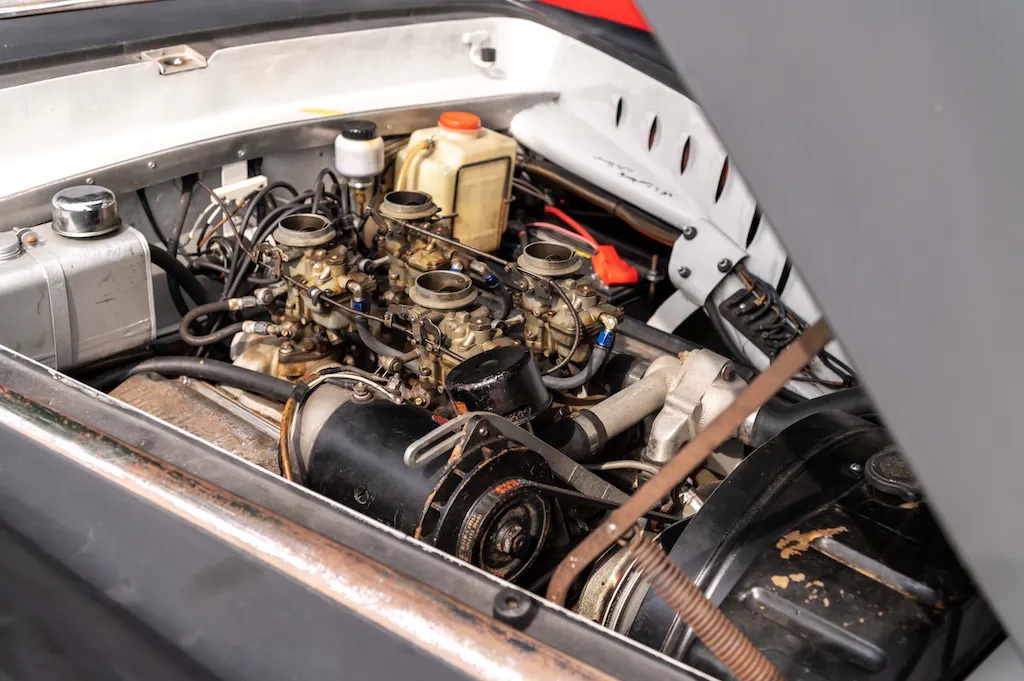
Cotter loves the look of his “ratty, old car,” so much so that although he performed a mechanical restoration, he left the aesthetics alone. The C-3 is powered by a 331-cubic-inch “FirePower” Chrysler Hemi V-8 with four carbs, mated to a Cadillac three-speed manual transmission, and it weighs 3400 pounds.
“It’s heavy, handles badly, and doesn’t stop,” Cotter says with a laugh. Naturally, he longed to put it on the track.
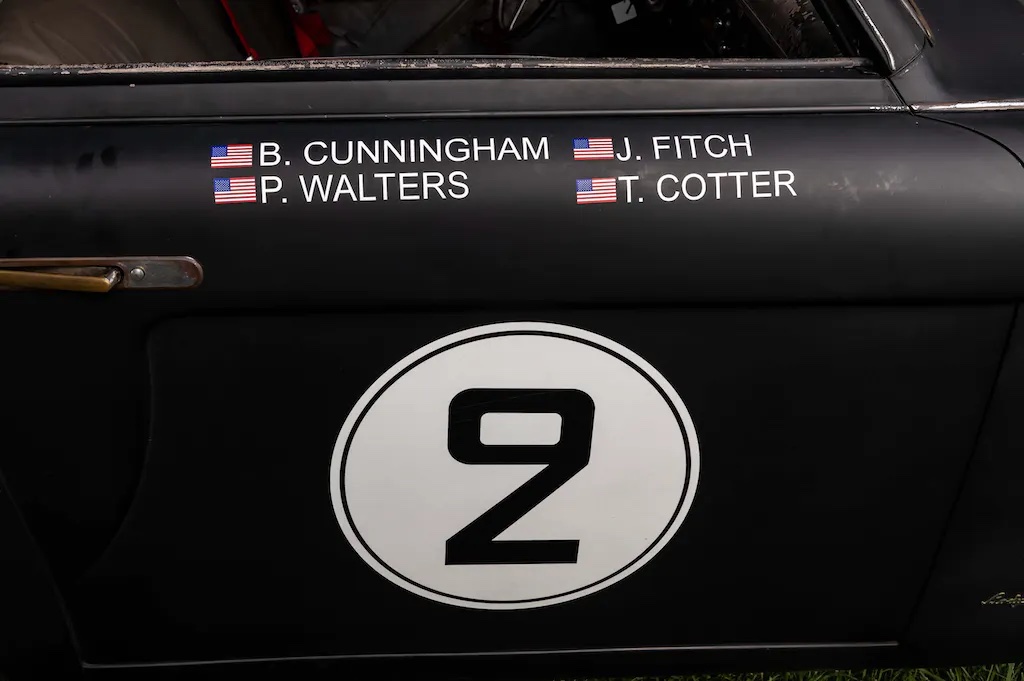
“Briggs was a reluctant manufacturer; he only did it because he had to,” Cotter says. “My car never raced, but I decided—in the spirit of Briggs—I was going to race it. So I not only drive it on the street, I’ve road raced it, drag raced it, and done speed trials and hill climbs. Without a doubt it’s the most unusual, rare, valuable car in these events.”
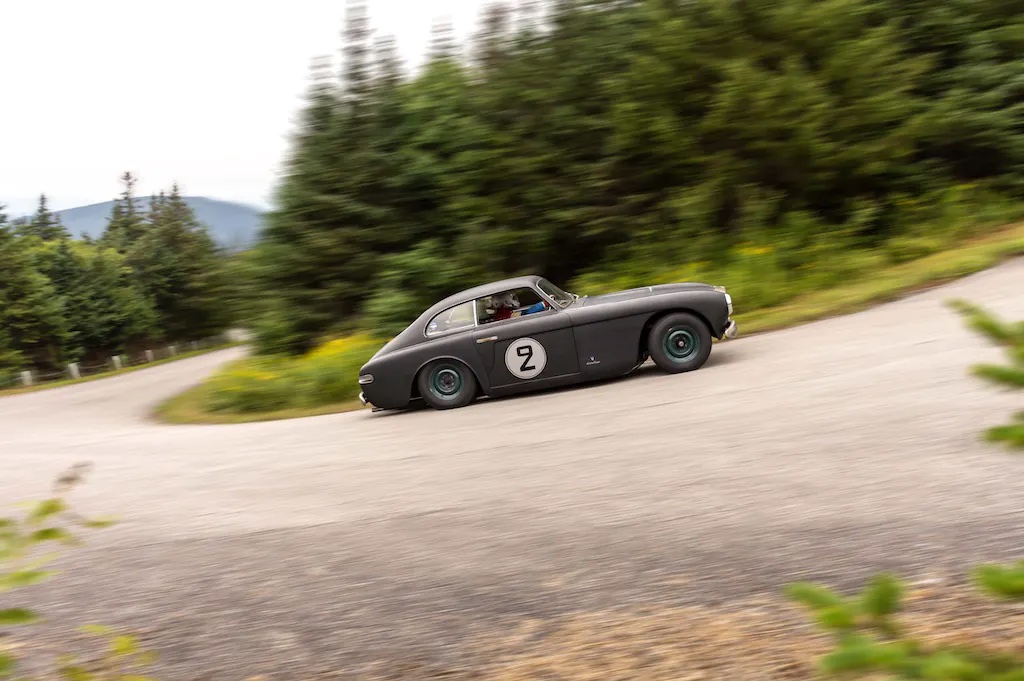
One of those events was the recent Mount Equinox (Vermont) Hillclimb, held August 11–13 on a closed 5.2-mile toll road chock full of hairpins, winding turns, and straightaways.
“You pass a Catholic Monastery, and it’s always a thrill to see a monk sitting on a rock and watching,” Cotter says. “They’ve taken a vow of silence, but they watch and smile.”
Cotter’s fastest time on the course was 5:50, and he finished 15th of 40 in a field that included Allards, MGs, Alfa Romeos, and Aston Martins. “(The C-3) may be slow and handle like a truck, but I drive it in a spiritive manner,” he says.
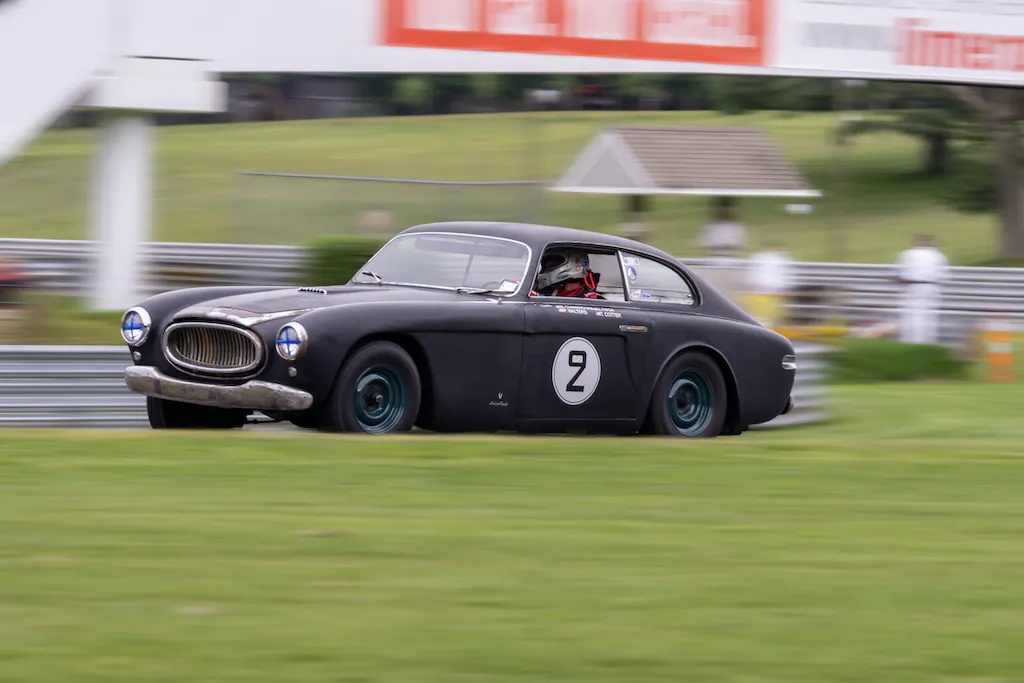
The month prior, Cotter’s Barn Find Hunter film crew joined him July 12–14 as he competed in the Loring Speed Trials, held on 2.5 miles of concrete runways at a former U.S. Air Force base in Limestone, Maine. “Two years ago, I hit 121 mph, and I went 123 this time. My goal is 125.”
The third event in Cotter’s 2023 tour is the Lime Rock Fall Finale: The Litchfield Cup vintage races, scheduled for September 29-30 at Lime Rock Park in Lakeville, Connecticut.
“It’s been held since 1950, and some of the greatest drivers in history have competed in it, including Briggs Cunningham, John Fitch, Carroll Shelby …,” Cotter says. “It was big time until the early- to mid-’70s. There’s no paddock; you just pull onto the grass. It’s like you’ve stepped back into the ’50s. If I could have lived in any other time, it would have been then. I was born 50 years too late.”
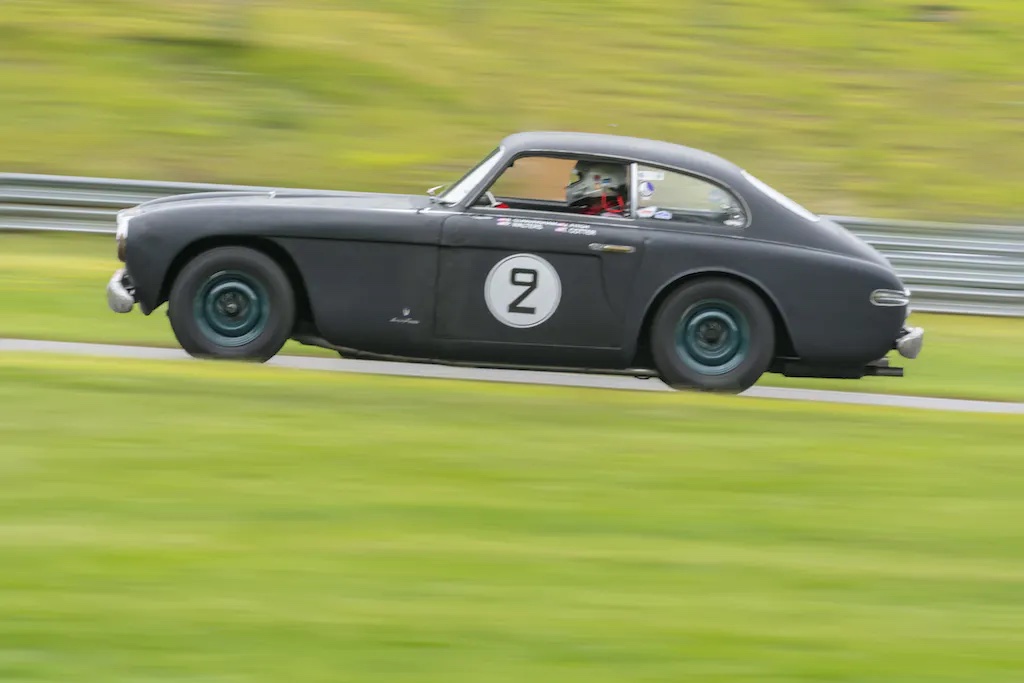
At least Cotter has his C-3 time machine and a special connection to its creator, who would be proud of how he drives it.
“If my car gets nicks and scratches, so be it. It’s for Briggs,” Cotter says. “He’s looking down and smiling.”
Almost as much as Cotter is.
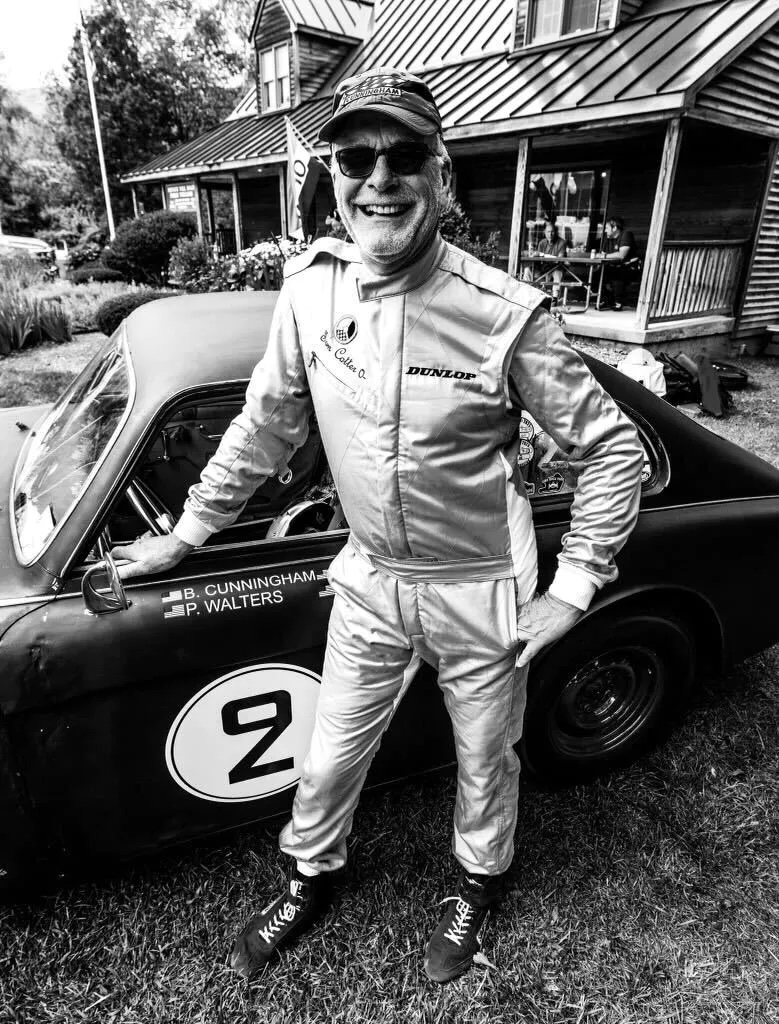
Report by Jeff Peek for hagerty.com



